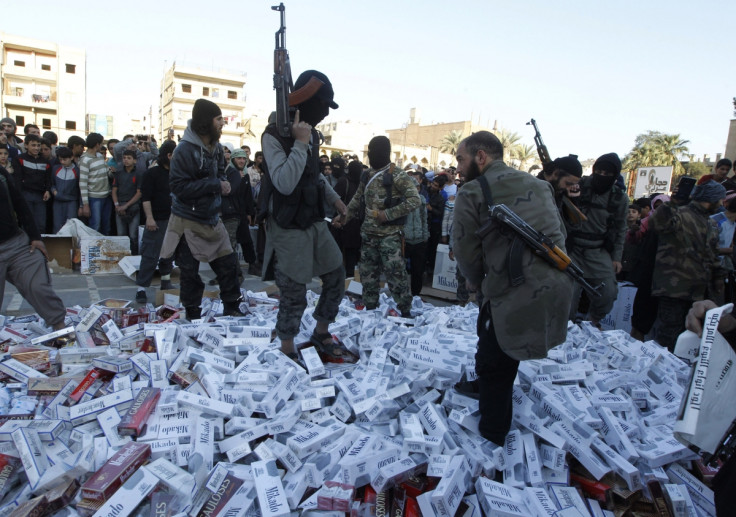Isis diversifies its terror into all aspects of the economy to match oil revenue

The Islamic State (Isis) earns as much from taxation, extortion and confiscation as it does from oil, an investigation has suggested. Earlier this month, Britain joined US-led coalition strikes against IS (Daesh) in a bid to weaken the terror organisation financially and militarily by hitting its infrastructure and oil revenue.
Out of some 10,600 coalition strikes, only 196 have been aimed at oil infrastructure and an extensive Financial Times (FT) investigation indicates that the group has a diverse and complex set of revenue streams. This includes imposition of zakat, the third pillar of Islam in which a proportion of one's wealth (around 2.5%) is given to charity, which has been perverted into extortion by IS to force the population to hand over money, which in turn funds salaries and services, such as bread subsidies and public upkeep.
IS spans a third of Iraq and almost half of Syria and its financial reach is vast, raking in money from every aspect of the economy under its rule. Last month, an IHS report revealed that the group takes in about $80m (£52.8m, €72.76m) a month in revenue.
"They leave no source of money untouched – this is their lifeblood," said Omar, a former Syrian rebel commander who ran military operations in tandem with IS. Interviews conducted by the FT with a range of people including officials and witnesses revealed that the terror organisation derives its income from trade, agriculture and even from the Iraqi government.
IS captured Iraq's second city, Mosul in June 2014 as the government continued to pay wages to its employees for nearly a year after the jihadis occupied the city. The Mosul workers have been coerced into handing over some $23m (£15.1m, €20.9m) in zakat in 2015 alone. According to estimates from senior Iraqi officials, as many as 400,000 people employed by the government are in IS-controlled areas and Baghdad took the decision to cut the salaries in an effort to limit the flow of money to the group.
Aside from forced taxation and confiscation – or plundering as it sweeps through territories – IS members are sold non-military goods at "loot markets" at roughly half the price of what a Syrian would pay. This includes items such as cars, motorbikes, power generators, furniture and electronic equipment.
© Copyright IBTimes 2024. All rights reserved.






